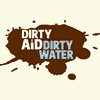
Le portail rinoceros d’informations sur les initiatives citoyennes pour la construction d’un autre monde a été intégré au nouveau site Ritimo pour une recherche simplifiée et élargie.
Ce site (http://www.rinoceros.org/) constitue une archive des articles publiés avant 2008 qui n'ont pas été transférés.
Le projet rinoceros n’a pas disparu, il continue de vivre pour valoriser les points de vue des acteurs associatifs dans le monde dans le site Ritimo.
Support the Alternative World Water Forum : March 2012
The World Water Forum Marseille 2012, Istanbul 2009, Mexico 2006, Kyoto 2003, The Hague 2000, Marrakech 1997: Veolia… Suez… Saur… Public Private Partnerships… Price of Scarcity… Cost Recovery… Suez… Veolia… Big Dams… Desalination… Making the Users Pay… Bechtel… Veolia… Water is a Commodity…
Have you had enough of hearing the same arguments again and again ? Have you had enough of hearing the same voices, those of multinationals and the most powerful states again and again ?
Help us let other voices be heard ! Those of the peoples, those of public management, those of the right to water and democracy, those of the environmental movement, those of associations, those of women… Support FAME, the Alternative World Water Forum in Marseille in 2012 !
First People of the Kalahari
We are the Bushmen of the Central Kalahari Game Reserve, Botswana. Together with our children, we number around 1,000 people. The government has forced us off our ancestral land, and now we live in resettlement camps. Since being relocated we have problems we never knew before: drinking, violence, HIV/AIDS. Many of us are dying in the camps. When we try to hunt or gather we are arrested and sometimes tortured.
In December 2006 we had a historic victory in the Botswana courts. The judges ruled that our forced relocation from our beloved land was unlawful, and that we have the right to go back and hunt there as we have always done. However, despite the judgment, the government won’t let us hunt and is stopping us using the water borehole on our land. It has also refused to help us with transport home. Because of this, most of us have not yet been able to return.
We just want to go home.
Will Ganga get its life back ?
River Ganga is now a ‘national’ river. The Prime minister of India announced this on November 4, 2008 after a meeting, with the ministers for water resources, environment and forests and urban development, to discuss how to bring the river back to life. Though a very important step, it is too early to predict what this ‘national status’ would actually mean to India’s most revered river and its people.
What gives us hope is the fact that government has accepted that all is not well with the Ganga Action Plan (GAP)—a dedicated programme launched in 1985 to restore the river back to bathing water quality. This certainly is winning half the battle. Press communiqué from the Prime Ministers Office (PMO) reads:“there is a need to replace the current piecemeal efforts taken up in a fragmented manner in select cities with an integrated approach that sees the river as an ecological entity and addresses issues of quantity in terms of water flows along with issues of quality.”
- More informations : http://www.cseindia.org
Dirty aid, dirty water
For over a decade governments and donors have forced water privatisation on developing countries as a condition of debt relief and aid. This ideological faith in the free market combined with a lack of understanding about alternative solutions has been a disaster for the world’s poor. From Bolivia to Argentina, the Philippines to Trinidad and Tobago, Tanzania to Guinea, case after case shows that privatisation does not work.
Critically, private companies have not significantly boosted the number of people connected to water. Companies are now starting to withdraw from these projects, and the international debate is finally starting to shift away from privatisation, but where is it shifting to ?
The World Development Movement’s (WDM) Dirty Aid, Dirty Water campaign explores the issues surrounding the global water crisis, asking tough questions of the existing trend towards privatisation of water services. It also calls on the UK government to stop misusing aid money to push a corporate takeover of the world’s water and to start supporting public solutions to the global water crisis.

- Watch the video (16’49) made by the independent film maker Jo Winterburn who has documented the debate surrounding the world water crisis, interviewing grassroots campaigners and policy analysts from both the UK and across the global south.
© rinoceros - Ritimo in partnership with the Fph via the project dph and the Ile de France region via the project Picri. Site developed using SPIP, hosted by Globenet. Legal mentions - Contact

